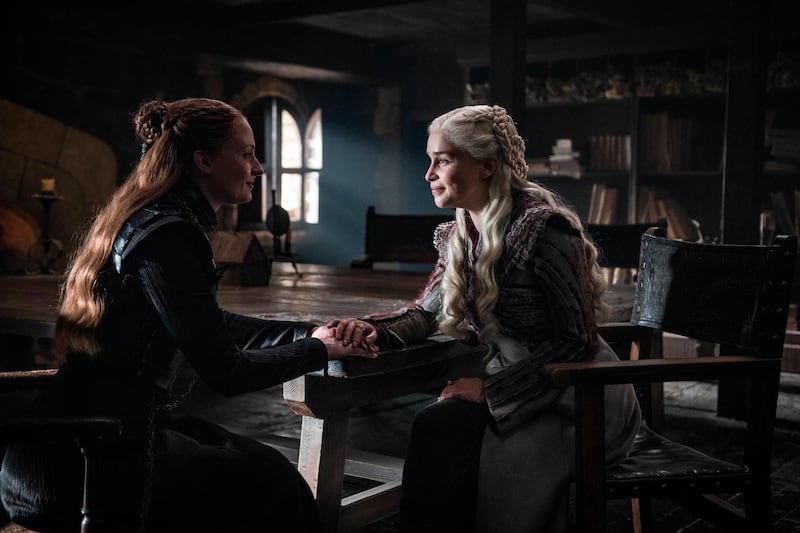In the 1980s, the TV show Dallas, set on a southern American ranch, captivated a global audience with its universal themes of capitalism, skulduggery in the oil industry, wealth and aspirations for a luxury lifestyle. Its cliffhanger Who Shot JR? attracted an audience of about 80 million worldwide, which at the time was the highest figure for an episode of a television series in history.
Before his death in 2012, its star Larry Hagman, who played villain JR Ewing, even claimed that Dallas had played a part in bringing about the downfall of communism. Indeed, the Ceaucescu regime used to broadcast the show in Romania as part of a grand scheme to show its people the wicked ways of the West but the plan backfired when viewers aspired to emulate the lives of the characters. The programme has often been cited as one of the triggers for the 1989 revolution and the end of communism in Romania.
Our viewing habits have been dramatically transformed in the three decades since but Game of Thrones, now in its final season, is a global phenomenon that has sparked the same kind of fervour, on an even grander scale. Its eighth season began earlier this month and in its eight years on air, it has shown it has a much broader palette and an even bigger reach.
While it is made by US network HBO and based on the books of American author George RR Martin, it is shot in international locations with a global cast, boosting tourist numbers in places such as Northern Ireland and Dubrovnik, Croatia, which are key filming locations. The story can be seen as an allegory for some of the wider themes that are playing out around the world today. We can, perhaps, see the dragons as representing the power to disrupt, in the same way that technology is doing so today. The evil, humanoid White Walkers represent the irresistible force of climate change. Equally, themes such as immigration, the clash of cultures, class, the struggle between broad power-sharing and the rule of a narrow elite, are woven throughout the entire series.
This kind of commentary is not new, of course. For example, JRR Tolkien's Lord of the Rings has been seen as the author's own feelings about the impact of the industrial revolution in England.
Game of Thrones is loosely inspired by England's War of the Roses in the 15th century and historical references proliferate. Dragon Queen Daenerys Targaryen is able to build a vast empire, thanks as much to her ability to assimilate to different cultures as her superior defence force. Parallels can be drawn here with Alexander the Great's expansion into Asia more than 2,000 years ago.
These are compelling plotlines but it is in its portrayal of the complexity of human relations that Game of Thrones gets its wide appeal. The overarching human villain – Queen Cersei Lannister – can still cut a sympathetic figure at times, even if she believes in her family's exceptional right to rule at all costs. Parallels can be drawn between her narcissistic, sociopathic tendencies and powerful, modern-day leaders.
Arguably the show’s best character, Arya Stark, is symbolic of a youthful generation. She is unwilling to conform to traditional roles demanded by society and instead adapts and grows to become one of the most powerful figures in the whole series, through her own intelligence and skill rather than through money or heritage.
You can, of course, take this too far. After all, it is just entertainment. But there is a valid takeaway from the show: that there are global, shared values. Today, there are too many people claiming the opposite is true and that issues of race, nationality and religion should divide us.
Game of Thrones is effectively a universal camp fire, where the world gathers to share stories with common themes. It is a great example of the ability of entertainment media to break down cultural barriers when done right. Its complexity mirrors the fact we are no longer satisfied with a one-size-fits-all simplified narrative. Our societies are made up of many parts and a distillation of different cultures.
In that light, perhaps the next global phenomenon might not be driven by America but could come from China or even the Middle East. As our stories converge, we are getting better at telling them, with an appeal for wider audiences beyond our own borders.
Mustafa Alrawi is an assistant editor-in-chief at The National





